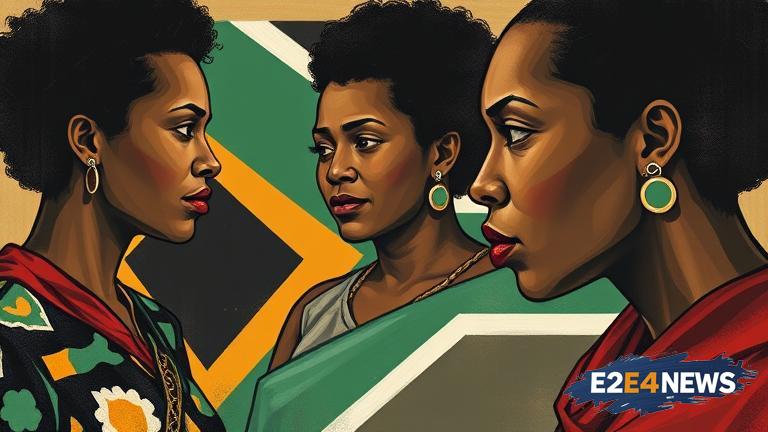The conversation around reparations in South Africa has been ongoing for decades, with a focus on addressing the historical injustices perpetrated against the majority black population during the apartheid era. However, the voices of women have often been marginalized or excluded from this conversation. It is essential to recognize the critical role that women played in the fight against apartheid and their continued struggle for justice and equality in post-apartheid South Africa. Women’s experiences and perspectives must be taken into account when developing reparations policies and programs. This includes acknowledging the specific forms of violence and discrimination that women faced during apartheid, such as forced removals, detention, and torture. Furthermore, women’s economic empowerment and land rights must be prioritized in any reparations agenda. The current reparations framework in South Africa has been criticized for being inadequate and ineffective, with many victims and their families still waiting for justice and compensation. The inclusion of women’s voices in the reparations agenda would not only ensure a more inclusive and equitable approach but also provide an opportunity for healing and closure. It is time for South Africa to re-examine its approach to reparations and prioritize the needs and concerns of women. This requires a fundamental transformation of the reparations agenda, one that recognizes the intersectional nature of oppression and the multiple forms of discrimination that women face. By amplifying women’s voices, South Africa can work towards a more just and equitable society, one that truly reflects the principles of democracy and human rights. The fight for justice in South Africa is not just about addressing historical injustices but also about creating a better future for all citizens. Women’s participation and leadership are crucial in this process, and their voices must be heard and valued. The government, civil society, and other stakeholders must work together to create a more inclusive and effective reparations framework. This includes providing support and resources for women’s organizations and initiatives, as well as ensuring that women are represented in decision-making positions. Ultimately, the transformation of the reparations agenda in South Africa requires a commitment to justice, equality, and human rights. It is time for South Africa to prioritize the needs and concerns of women and work towards a more just and equitable society. The country’s future depends on it. Moreover, the international community has a critical role to play in supporting South Africa’s efforts to address historical injustices and promote justice and equality. This includes providing technical assistance, financial support, and diplomatic pressure to ensure that the government and other stakeholders are held accountable for their actions. The struggle for justice in South Africa is not just a national issue but a global one, requiring a collective effort to address the root causes of inequality and oppression. By working together, we can create a more just and equitable world, one that truly reflects the principles of democracy and human rights. In conclusion, the transformation of the reparations agenda in South Africa to include women’s voices is a critical step towards achieving justice and equality. It requires a fundamental shift in how we approach reparations, one that recognizes the intersectional nature of oppression and the multiple forms of discrimination that women face. By amplifying women’s voices and prioritizing their needs and concerns, South Africa can work towards a more just and equitable society, one that truly reflects the principles of democracy and human rights.
